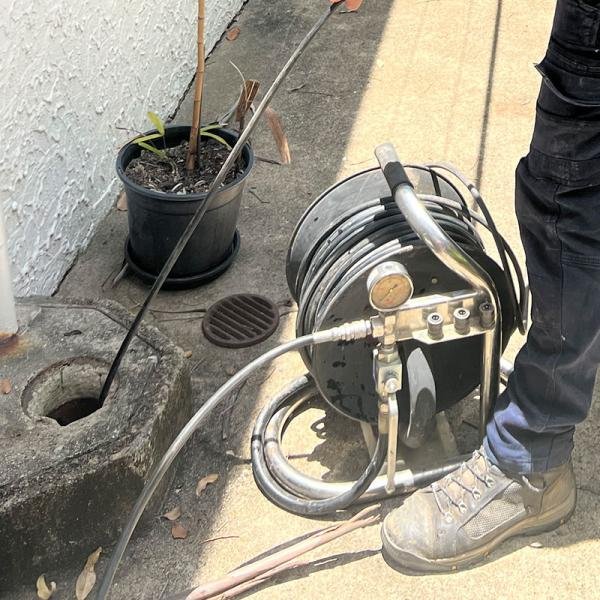I. Introduction
A. Brief Overview of ISO 17025 and Its Significance in Laboratory Accreditation
ISO 17025 is an international standard that specifies the requirements for competence in testing and calibration laboratories. It ensures that laboratories can produce accurate and reliable results consistently. Achieving ISO 17025 accreditation signifies that a laboratory meets rigorous standards for quality management, technical competency, and data integrity, enhancing its credibility and trustworthiness in the global market.
B. The Role of ISO 17025 Training in Achieving and Maintaining High Standards in Testing and Calibration Laboratories
ISO 17025 training is crucial for laboratory professionals to understand and implement the standard’s requirements effectively. It equips staff with the knowledge to maintain high-quality testing and calibration practices, ensure compliance, and manage the accreditation process. Training helps laboratories achieve and sustain ISO 17025 accreditation by embedding best practices into daily operations, fostering a culture of continuous improvement.
II. What is ISO 17025?
A. Definition and Background of ISO 17025
ISO 17025 is an international standard that specifies the general requirements for the competence of testing and calibration laboratories. Established by the International Organization for Standardization (ISO), it covers aspects such as quality management systems, technical competence, and the ability to produce valid and reliable results. First published in 1999 and updated in 2017, ISO 17025 ensures that laboratories adhere to rigorous standards for accuracy and consistency in their operations.
B. Key Differences Between ISO 17025 and Other Standards Like ISO 9001
While ISO 9001 focuses on quality management systems across various industries, ISO 17025 is specifically tailored for laboratories. ISO 17025 includes detailed requirements for technical competence, such as method validation, equipment calibration, and personnel qualifications. In contrast, ISO 9001 is broader and applies to general organizational processes. ISO 17025 also emphasizes laboratory-specific aspects like sampling procedures and result validation, making it more specialized in ensuring laboratory excellence.
C. Objectives and Benefits of ISO 17025 Accreditation for Laboratories
The main objectives of ISO 17025 accreditation are to ensure the accuracy, reliability, and consistency of laboratory results. Benefits include enhanced credibility and trust with clients, improved operational efficiency, and greater compliance with regulatory requirements. Accreditation demonstrates a laboratory’s commitment to quality and technical competence, which can lead to increased business opportunities, reduced errors, and enhanced customer satisfaction. It also fosters a culture of continuous improvement and adherence to best practices in testing and calibration.
III. The Benefits of ISO 17025 Training
A. Ensuring Compliance with International Standards and Regulations
ISO 17025 training ensures that laboratory staff are well-versed in the standard’s requirements, helping laboratories achieve and maintain compliance with international standards. Training covers key aspects such as quality management, technical competence, and regulatory requirements, ensuring that laboratories adhere to the necessary protocols. This compliance not only helps in meeting accreditation requirements but also in avoiding legal and regulatory issues, ensuring that the laboratory operates within established global norms.
B. Enhancing the Credibility and Accuracy of Laboratory Results
Effective ISO 17025 training enhances the credibility of laboratory results by ensuring that all testing and calibration procedures meet rigorous standards. Training emphasizes the importance of method validation, accurate measurement techniques, and reliable data reporting. As a result, laboratories can produce consistent and accurate results, which boosts their reputation and reliability. This credibility is crucial for gaining trust from clients and stakeholders who depend on the laboratory’s findings for critical decisions.
C. Improving Laboratory Processes and Operational Efficiency
ISO 17025 training helps optimize laboratory processes by introducing best practices and improving operational efficiency. Training covers topics such as effective quality management, risk management, and resource utilization. Implementing these practices leads to streamlined operations, reduced errors, and more efficient use of resources. Improved processes not only enhance the overall productivity of the laboratory but also contribute to better management of time and costs, supporting the laboratory’s long-term success.
D. Boosting Confidence Among Clients and Stakeholders
ISO 17025 training instills confidence among clients and stakeholders by demonstrating the laboratory’s commitment to quality and accuracy. When a laboratory adheres to internationally recognized standards, it reassures clients that their testing and calibration needs are being handled with the highest level of competence. This confidence translates into stronger client relationships, increased business opportunities, and enhanced stakeholder trust, as clients and partners are more likely to rely on and recommend a laboratory with proven expertise.
IV. Types of ISO 17025 Training Programs
A. Overview of Training Formats: Online, In-Person, and Blended Learning
ISO 17025 training is available in various formats to accommodate different learning preferences and needs. Online training offers flexibility with self-paced modules that can be accessed from anywhere, making it ideal for remote teams. In-person training provides direct interaction with instructors and hands-on practice, which can be beneficial for complex topics and real-time feedback. Blended learning combines online coursework with in-person sessions, offering a balanced approach that leverages the convenience of digital learning and the depth of face-to-face instruction.
B. Choosing the Right Training Program Based on Laboratory Needs and Individual Roles
Selecting the appropriate ISO 17025 training program depends on the laboratory’s specific needs and the roles of the participants. For staff new to the standard, an introductory course provides essential knowledge. Internal auditor and lead auditor courses are suitable for those involved in auditing and accreditation processes. Laboratories seeking to implement or enhance ISO 17025 practices should consider implementation courses. Assessing the current capabilities and goals of the laboratory helps determine which training will most effectively address gaps and support achieving accreditation.
V. Key Components of ISO 17025 Training Courses
A. Core Subjects Covered: Quality Management Systems, Testing and Calibration Methods, and Data Integrity
ISO 17025 training covers crucial subjects to ensure comprehensive understanding. Quality management systems involve the establishment of processes and procedures to maintain high standards and ensure consistent performance. Testing and calibration methods focus on techniques and protocols for accurate and reliable measurement. Data integrity emphasizes the importance of maintaining and protecting data accuracy and confidentiality. Mastery of these core areas is essential for achieving and maintaining ISO 17025 accreditation and ensuring the laboratory’s results are trustworthy and valid.
B. Certification Process and Its Significance for Laboratories
The certification process for ISO 17025 involves several steps: completing required training, passing examinations, and undergoing an audit by an accredited certification body. Certification is significant because it validates that a laboratory meets international standards for competence and quality. It enhances the laboratory’s credibility, demonstrates a commitment to maintaining high standards, and can lead to increased business opportunities. Certification also ensures compliance with regulatory requirements and fosters continuous improvement in laboratory practices.
VI. Conclusion
A. Recap of the Importance of ISO 17025 Training in Achieving High Laboratory Standards
ISO 17025 training is pivotal in ensuring that laboratories meet international standards for testing and calibration. It provides essential knowledge on quality management systems, testing methods, and data integrity, crucial for maintaining high standards of accuracy and reliability. By equipping laboratory professionals with the skills to implement and uphold ISO 17025 requirements, training directly contributes to achieving and sustaining accreditation, enhancing overall laboratory performance and credibility.
B. Encouragement to Invest in Training for Better Laboratory Performance and Accreditation
Investing in ISO 17025 training is a strategic move that significantly enhances laboratory performance and operational excellence. High-quality training ensures compliance with international standards, improves the accuracy of results, and optimizes laboratory processes. It also prepares staff for successful audits and accreditation processes. By committing to ISO 17025 training, laboratories can achieve and maintain accreditation, foster a culture of continuous improvement, and boost their reputation in the industry.
C. Call to Action: Exploring Available Training Options and Getting Started
Take the next step towards elevating your laboratory’s standards by exploring ISO 17025 training options. Research available courses and choose the program that aligns with your laboratory’s needs and staff roles. Whether you opt for online, in-person, or blended learning, ensure that the training provider offers comprehensive and practical instruction. Begin today to empower your team with the knowledge and skills needed for ISO 17025 accreditation and enhanced laboratory performance.



